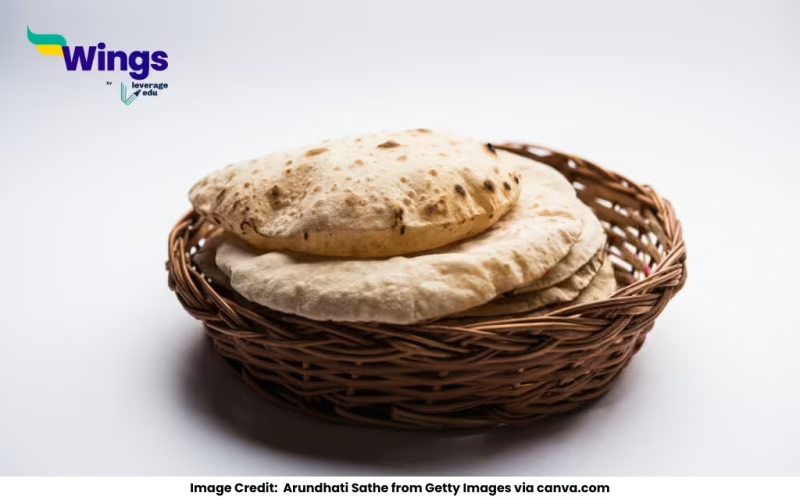Roti is commonly referred to as “flatbread” in English. However, this translation doesn’t capture the full cultural and culinary significance of roti. It is a staple in South Asian cuisine, especially in countries like India, Pakistan, Bangladesh, and Sri Lanka.
The word “roti” itself is often used directly in English, especially in culinary and cultural contexts, much like tortilla in Mexican cuisine or baguette in French cuisine.
Different Types of Indian Breads and Their English Names
| Local Name | Common English Name | Description |
| Roti | Flatbread | Unleavened bread, made with whole wheat flour, cooked on a flat griddle (tava). |
| Chapati | Whole Wheat Flatbread | A type of roti, thinner and soft, often used interchangeably with roti. |
| Naan | Leavened Flatbread | Made with white flour, yeast or baking powder, and cooked in a tandoor (clay oven). |
| Paratha | Layered Flatbread | Fried or pan-cooked, often stuffed with vegetables or meat. |
| Phulka | Puff Roti / Soft Flatbread | A light, puffed-up version of chapati, cooked on open flame. |
| Bhakri | Coarse Flatbread | Made with various flours like jowar (sorghum) or bajra (pearl millet). |
| Poori | Deep-Fried Bread | A deep-fried, puffed version of roti made with unleavened dough. |
Why Roti Doesn’t Have a Perfect English Equivalent
Although “flatbread” is the closest English term, roti is unique due to:
- Its ingredient simplicity (usually just whole wheat flour and water).
- Its cooking method (dry heat on a flat pan).
- Its cultural role as an everyday staple in many South Asian households.
So, while you can say roti = flatbread, it’s best to understand the context in which it’s made and eaten.
Also Read:
What is the Role of MNCs in Promoting the Globalisation Process?
Who Elects the Panchayat Head?
Meaning of What in Gujarati


 One app for all your study abroad needs
One app for all your study abroad needs











 60,000+ students trusted us with their dreams. Take the first step today!
60,000+ students trusted us with their dreams. Take the first step today!